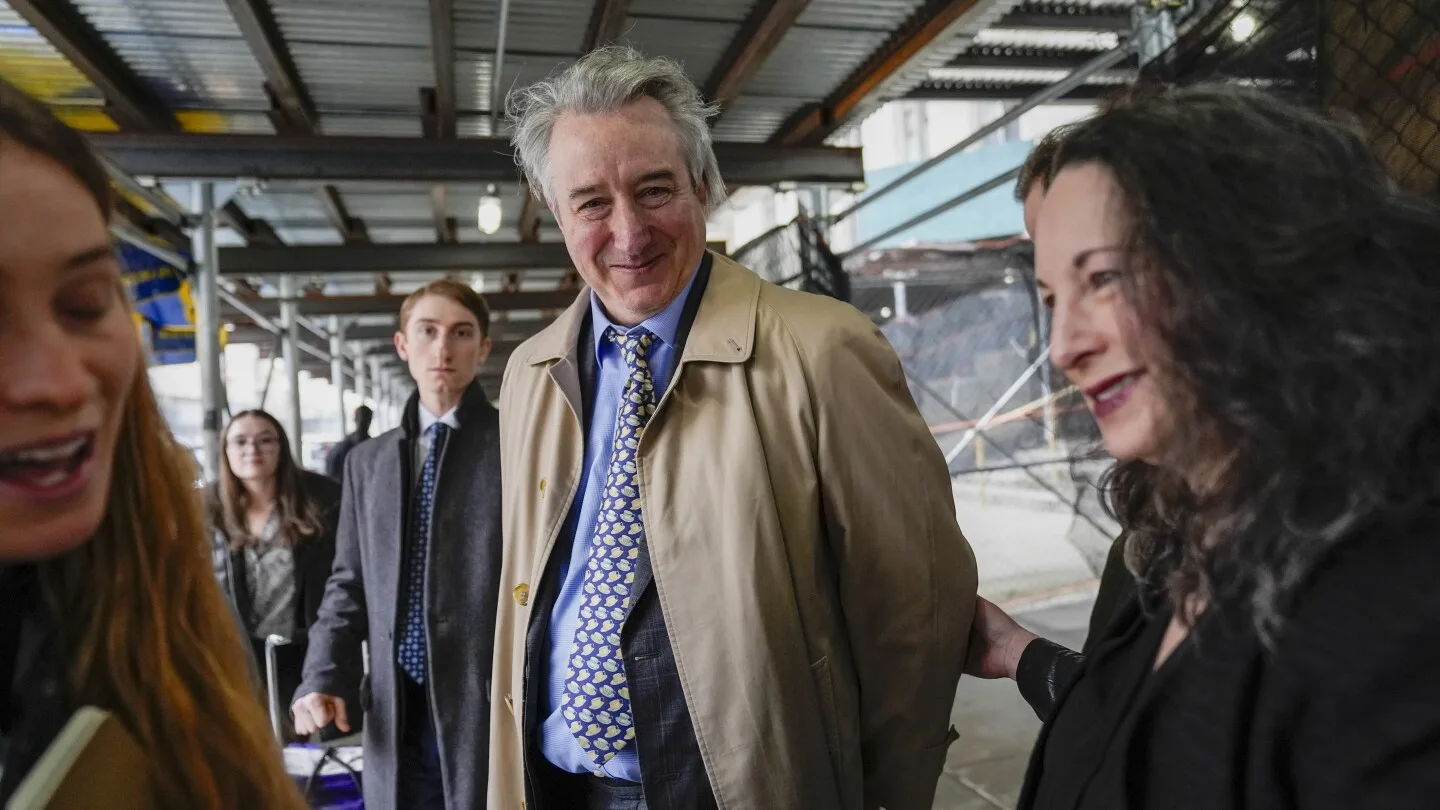NEW YORK (AP) — New York prosecutors abruptly dropped their criminal case Wednesday mid-trial against three men accused of conspiracy to possess a cache of handwritten lyrics to “Hotel California” and other Eagles hits.
Assistant Manhattan District Attorney Aaron Ginandes informed the judge at 10 a.m. that prosecutors would no longer pursue the case, citing recently available emails that defense attorneys said raised questions about the fairness of the trial. The trial had been ongoing since late February.
The series of communications only emerged when Eagles star Don Henley apparently decided last week to waive attorney-client privilege, after he and other prosecution witnesses had already testified. The defense argued that the new revelations raised questions it had not been able to ask.
“The witnesses and their attorneys” used attorney-client privilege “to obscure and hide information they believed to be damaging,” Judge Curtis Farber said in dismissing the case.
The case centered on about 100 pages of legal pads from the creation of a classic rock colossus. The 1976 album “Hotel California” ranks among the third largest seller of all time in the United States, thanks in large part to its evocative and gently unsettling title song about a place where “you can check in at any time, but you can never leave.”
The defendants were three well-established figures in the collectibles world: rare book dealer Glenn Horowitz, former Rock & Roll Hall of Fame curator Craig Inciardi and rock memorabilia dealer Edward Kosinski.
Prosecutors had said the men knew the pages had a questionable chain of ownership but peddled them anyway, aiming to fabricate provenance that would be accepted by auction houses and avoid demands for the documents' return to Eagles co-founder Don Henley.
The defendants have pleaded not guilty to charges including conspiracy to criminally possess stolen property. Through their lawyers, the men claimed they were the rightful owners of pages that had not been stolen by anyone.
“We are pleased that the prosecutor's office ultimately made the right decision in dropping this case. This should never have been brought,” Jonathan Bach, Horowitz’s attorney, said in court.
Horowitz hugged his tearful family members, but made no comment as he left court. Inciardi also declined to speak outside the courtroom, but said in a statement: “The next step is to rebuild our reputation.”
One of Kosinski's lawyers, Scott Edelman, said that outside of court they would evaluate possible future legal steps, “given the judge's statements regarding his serious concerns about the veracity of the witnesses.”
Edelman praised prosecutors for their final decision, but added, “It’s too little and too late.” »
“In this case, the prosecutor was blinded by the fame and fortune of a celebrity,” Edelman said, “and that blinded him to the information that was not being provided to him.”
Henley's current attorney, Dan Petrocelli, said in an emailed statement that the attorney-client privilege that previously protected some of the communications “is a fundamental guardrail in our justice system” that should rarely be abandoned .
“As a victim in this case, Mr. Henley has once again been subjected to this unjust outcome,” Petrocelli said. “He will assert all his rights before the civil courts.”
The defense argued that Henley gave the documents decades ago to a writer who had worked on an unpublished biography of the Eagles and who then sold the handwritten sheets to Horowitz. He in turn sold them to Inciardi and Kosinski, who began auctioning some pages in 2012.
Henley, who only realized they were missing when they showed up for sale, reported them stolen. He testified that during the trial he let the writer look through the documents for research purposes, but “never offered or gave them to anyone to keep or sell.”
The writer has not been charged with any crime and has not appeared in court. He did not respond to messages about the lawsuit.
In a letter to the court, Ginandes, the prosecutor, said the waiver of professional secrecy resulted in the late production of about 6,000 pages of documents.
“These late disclosures revealed relevant information that the defense should have had the opportunity to explore during cross-examination of the People’s witnesses,” Ginandes wrote.

